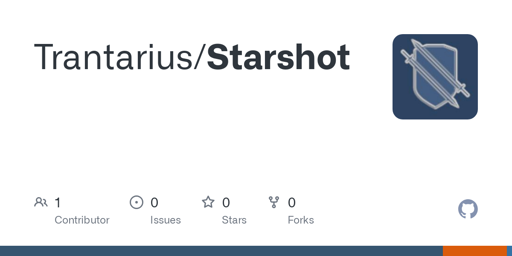Trantarius
- 1 Post
- 32 Comments

 81·2 years ago
81·2 years agoBook burnings are bad when they are used to prevent the free sharing of information or ideas. It is a form of censorship. Burning the Quran is not censorship, because this is not an attempt to ban the Quran or prevent anyone from reading it. Its an entirely symbolic gesture. Its comparable to burning the American flag, which I’m guessing you’re not so against.

 4·2 years ago
4·2 years agoI doubt you want to. Its probably at least a terabyte.

 7·2 years ago
7·2 years agoThat’s still best achieved with SBMM (just a less strict version). With random matchmaking, you are only equally likely to see better/worse players if you are in the 50th percentile.
Also, each player is independently selected (when random). This means there will probably be a mix of high skilled and noob players in every game. You would not see a team of mostly noobs or mostly pros. For a player in the 50th percentile, with a team of 6, the chance of being better than every player on the other team team is only 1.5%. For the 25th percentile, it is 0.02%. So a very significant number of players would (almost) never experience an “insane spee on noobs”. However, the chance of having at least one player in the 75th percentile on the opposing team is 82%. So they would frequently encounter situations in which they feel hopelessly outmatched.
The only way to solve this is to use matchmaking that attempts to take skill into account.

 2·2 years ago
2·2 years agoThe Chinese room argument doesn’t have anything to do with usefulness. Its about whether or not a computer that passes the turing test is conscious. Besides, the argument is a ridiculous one to begin with. It assumes that if a subcomponent of a system (ie the human) lacks “understanding”, then the system itself (the human + the room + the program) lacks understanding.
Well I guess I’m one of the 2 then

 21·2 years ago
21·2 years agoI love that they keep saying stuff like “introducing Ubuntu to the Christian community”, as if they couldn’t already use it.

 81·2 years ago
81·2 years agoI know it’s repetitive, but (some) people still don’t seem to hear it. Everyone complains about windows doing a million annoying things, but so few actually consider an alternative. Some people need to be reminded that they don’t need to wait for Microsoft to fix their problems. Admittedly, I doubt very many of those are in this community, or on this platform though.
When you hit the windows key (aka meta-key or super-key) it brings up the app launcher. You get a dock at the bottom with pinned or running apps (like a taskbar), and all of your open windows are presented in a sort of mini-version that lets you switch between them or move them between workspaces. There is a search bar that you can immediately type into to open any app with a .desktop file. There is also a button to bring up the app grid which shows your apps kind of like a mobile device’s home screen.
Not having a dock is one of my favorite things about gnome. I actually use an extension to hide the top bar too. There’s just something so satisfying about having 100% usable space on screen. I get all the info back in the win-key overlay, so I don’t really need that stuff on screen at all times.

 28·2 years ago
28·2 years ago
Does this not work?
I think you can do the same in the post

 4·2 years ago
4·2 years agoYou linked a webpage as an embedded image. If you meant to make a link, use:
If you meant to embed:

You formatted your links as images. Markdown uses  for images, […](…) for links.

 5·2 years ago
5·2 years agoI find that much harder to read than a for loop. You are making a helper function to only use it once, which is kind of confusing when it is totally unnecessary. Also, distinguishing between two groups only inside the setter line is weird. Applying the modification to one group, then the other, is more obvious. Considering the alternative isn’t really longer, and only using basic loop syntax, I would just use the loop. If you really want to add the “set dots visibility” explanation into it, just use a comment, that’s what they’re for.
I literally just now misunderstood your code and had to change my comment to correct for it.

 7·2 years ago
7·2 years agoUse:
items=[...] for o in items: ...This is the most direct way of doing what you want. The first option might allocate a new array each iteration, which is unnecessary. The match statement is both a pain in the ass to write and less direct, which at best compiles to the same thing and at worst has you doing a bunch of totally unneeded comparisons.
If this ‘i’ variable you used isn’t just an incrementing counter, use the last option. If it is though, it’s an extra counter you don’t actually need.
The performance difference here would be so small I doubt you could even observe it. So, you really shouldn’t worry about this particular pattern. Compiler optimizations are more likely to trigger on simple, direct code, so writing it as directly as possible is probably the fastest option anyway.

 7·2 years ago
7·2 years agoI’ve been playing on minimum graphics, and it looks much better than any previous Bethesda game. The performance isn’t too great, and the TAA is a bit blurry, but it’s tolerable.

 64·2 years ago
64·2 years ago“hmm… a well thought out, reasoned response. But I disagree! How should I express my opinion effectively, to both this person and others who wander by?”
What a shittake
“Ah, yes. My masterpiece. Everyone must see this.”

 61·2 years ago
61·2 years agoNot to justify it, but you can work around this with offline mode.
" dumb it down"? Isn’t the mobile app (s) displaying the same posts as the website(s)?

 1·2 years ago
1·2 years agoWell you’re right that it’s not practical now. By “soon” I was thinking of like 10+ years from now. And as I said, it would likely start in systems that aren’t used for those applications anyway (aside from web browsers, which use way more ram than necessary anyway). By the time it takes over the applications you listed, we’ll have caches as big as our current ram anyway. And I’m using a loose definition of cache, I really just mean on-package memory of some kind. And we probably will see that GPU style memory before it’s fully integrated.




For a while I just couldn’t play souls-likes. The enemy attacks were blatantly undodgeable. Like, even if you move at the maximum possible speed, in any direction, at the very start of an animation, you can’t get out of the way. Then I realized you’re not really supposed to get out of the way, you’re supposed to abuse the immunity frames from the roll to “dodge” straight through the attacks. Basically the opposite of what I had been doing.